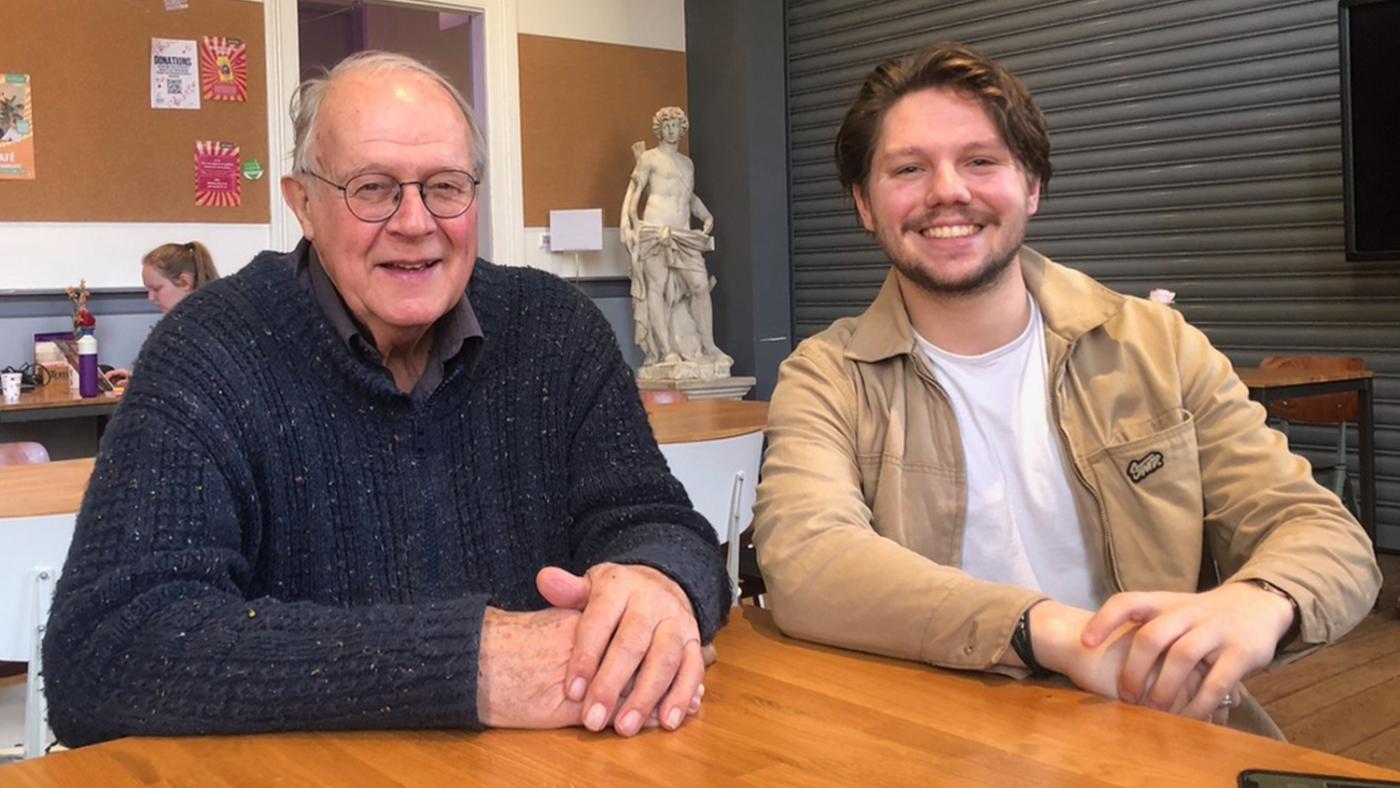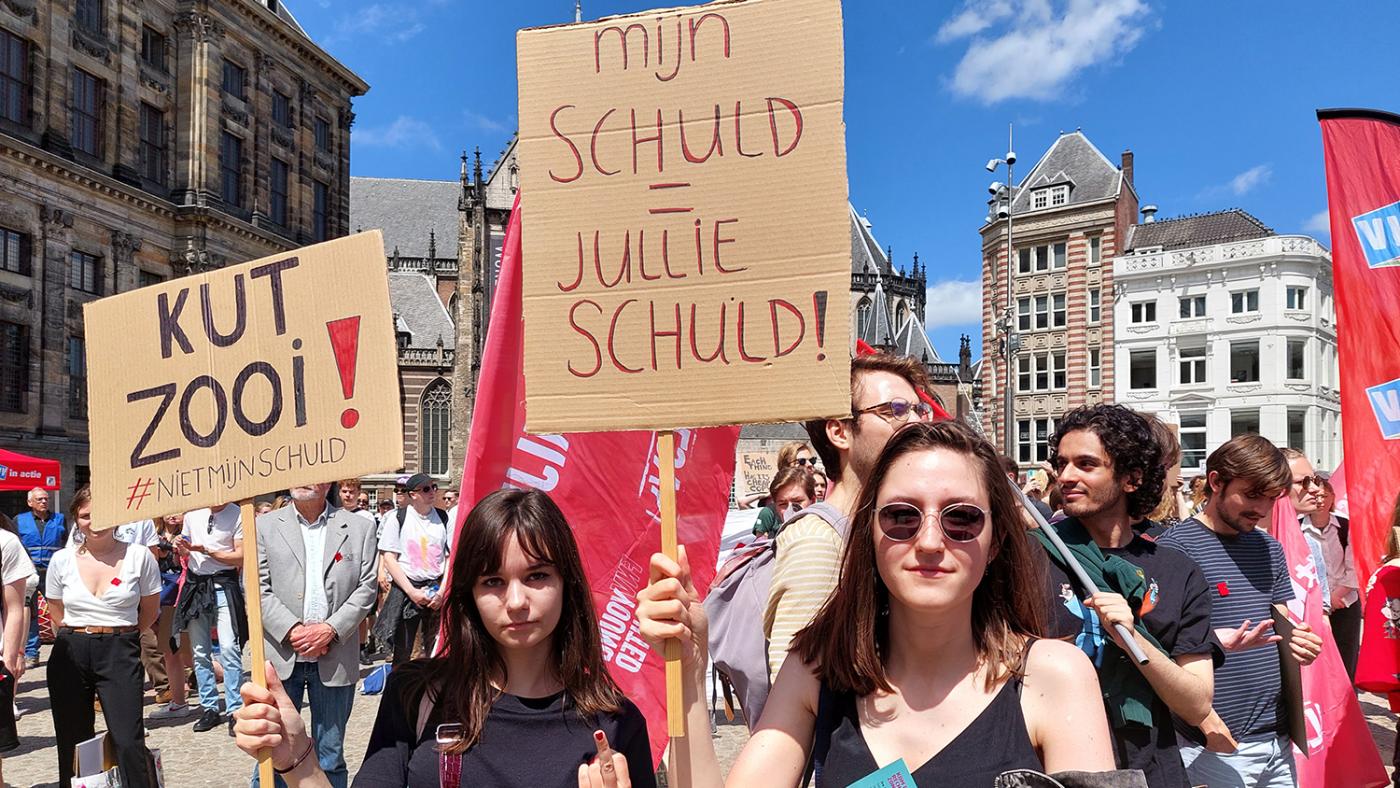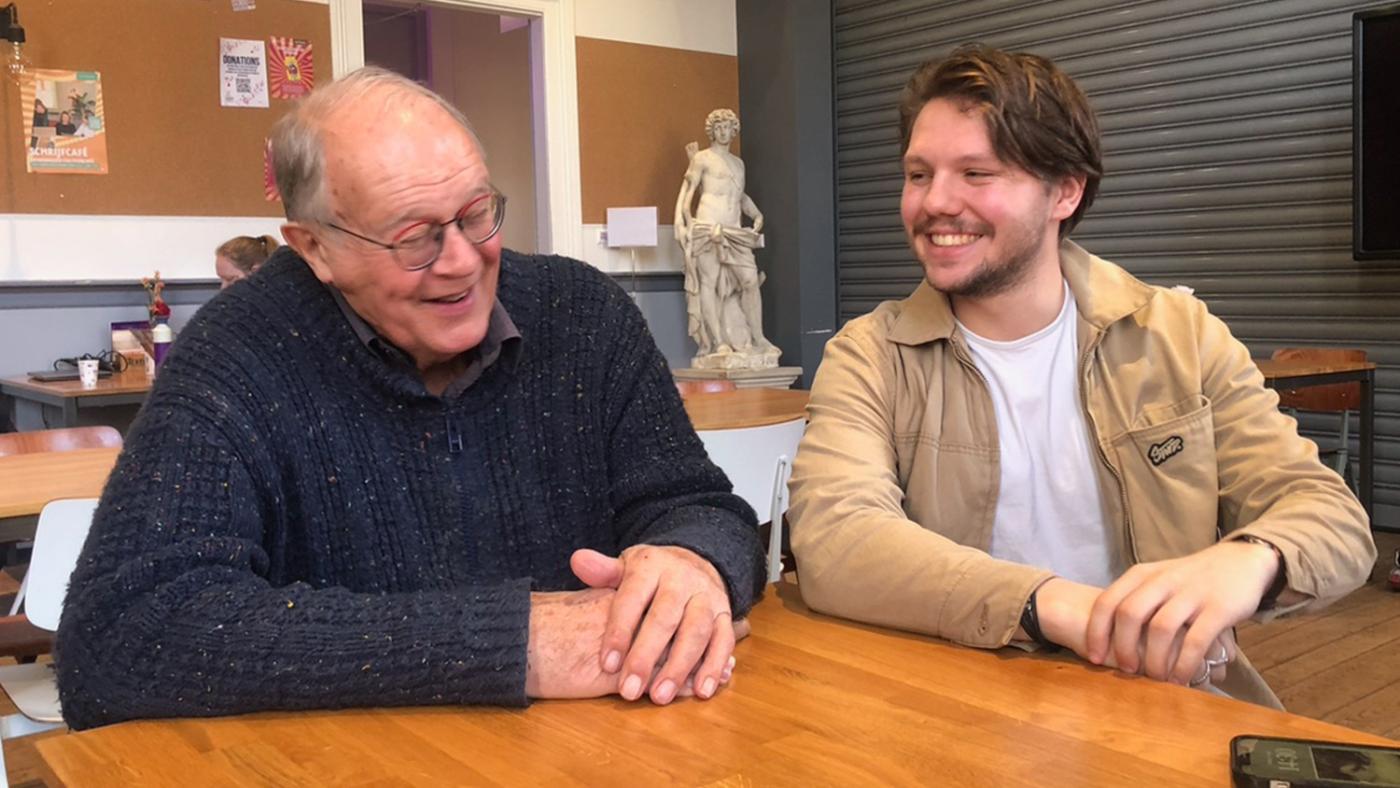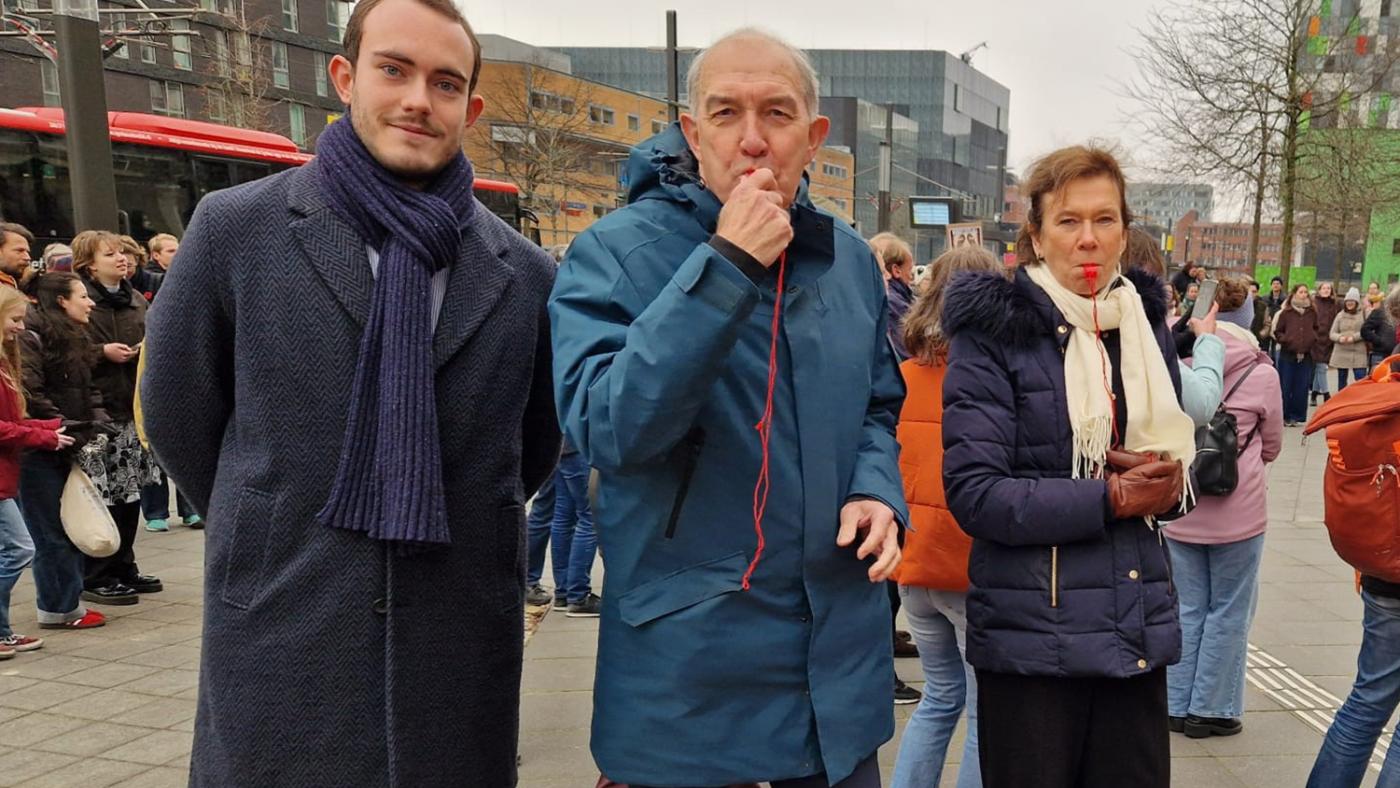Education protests then and now
'Ultimately, the goal of protesting is to get to the negotiating table’

The 1960s were marked by protests in the Netherlands and beyond. In 1968, some seven hundred students occupied Maagdenhuis in Amsterdam for five days, demanding that Dutch education become more democratic. Several protests have happened in the Netherlands since the government announced extensive austerity measures for higher education. On November 14, a ‘forbidden’ demonstration took over the city centre of Utrecht, followed by a massive demonstration on November 25, when 20,000 students and employees from the higher education sector gathered in The Hague. Universities kept on protesting this year with a series of strikes and other actions. The Netherlands hadn't seen such a massive wave of education-related protests since the 1960s, although students have participated in big marches against the Vietnam War and nuclear weapons, to name but two examples.
Has students' protest mentality changed over the years? What about the way teachers and university administrators react to them? DUB spoke with former protester René van de Kraats and the current chair of the student union Vidius, Luuk Bruijnen. René studied Dutch and General Literary Studies between 1965 and 1972 and worked as a Dutch teacher at Christelijk Gymnasium, in Utrecht, for many years. He also worked as a language teacher at Utrecht University before retiring to teach at Károly University in Budapest. Luuk Bruijnen is a History student in Utrecht.
Where were you on November 14, when the municipality of Utrecht cancelled a protest against the austerity measures, but students protested anyway?
‘I happened to be cleaning my house that week and had just organised some old newspaper clippings,’ René says. He was surprised when he suddenly heard a big group of protesters marching down his street to manifest their dissatisfaction regarding the substantial cuts to the higher education budget. ‘One of the clippings was an article about a student protest in 1966 that I had participated in.’ At the time, René was a member of the Student Labour Movement (SVB) and the Utrecht Student Faculties (USF). ’I thought: "Hey, I've got to show this to them!"' So, he stood in his doorway to show the clipping. ‘Everyone who passed by started applauding. Some made videos of it and posted it on the internet, making me go viral despite my old age,’ René laughs.
Luuk, who helped organise the protest, talks about his sense of pride when he came across a photo of René in DUB's article. ‘I saw the article about the protest organised by the USF, Vidius’ predecessors. I thought to myself: "I made my predecessors proud by letting that day go ahead."’

René van de Kraats shows a newspaper clipping to students protesting the budget cuts in Utrecht on November 14, 2024. Photo: DUB
Luuk then starts talking about how tense that day was. Utrecht Mayor Sharon Dijksma had advised against the protest the day before it was supposed to happen. ‘We were getting nervous because we could still see hundreds of people planning to come anyway in the mobilisation app groups. That was pretty tense because something could go wrong if many people were to gather without any coordination.’ Together with other organisations, they did everything in their power to make sure things went as smoothly as possible. Up until the morning of the protest itself, their gathering was still an illegal demonstration. ‘I thought: "There's a chance that the riot police will show up. I could get a baton on my neck for the first time in my life. In the end, everything was fantastic, and it was great to see that everyone was there with the right conviction.’
What were the SVB and USF demonstrating for at the time?
René: ‘We were demonstrating for the democratisation of higher education. We opposed universities' administrative restructuring, in which students had absolutely no say’. At the time, René was the editor-in-chief of Trophonios, a student magazine that addressed all kinds of abuses at Utrecht University. ‘As an editorial board member, I had to be involved in everything, so I joined all the protests. The most memorable protest was when we occupied the Aula of the Utrecht University Hall in 1966 to plead for more say in the board. President-curator Count Van Lynden van Sandenburg and board secretary Henk Schamhardt were also present in the packed hall, and they were very friendly to us. I will never forget that meeting.’ René says that those protests yielded results fairly quickly, leading the democratisation process to accelerate. ’Unfortunately, much of that was reversed in the 90s.’
In recent years, students have protested against the abolition of the basic student grant and later, when the grant was reinstated, against the mediocre compensation for the generation that missed out on the benefit. Luuk says that student participation has not been a priority since he became the Vidius chair. ‘We mainly demonstrate against the budget cuts. Getting the penalty for students who take longer to graduate off the table was our first goal, and now the priority is to fight the budget cuts and preserve programmes at risk.’

The so-called 'unlucky generation' takes to the streets. Photo: HOP / Josefine van Enk
Do you feel that students' protest mentality has changed?
Luuk says that he misses the fighting spirit. ‘Students sometimes think: "Other people are protesting and the government isn't doing anything about it anyway," he says. In René's view, 'the individualisation process', which 'was not as prevalent' in his time, is one of the factors influencing this behaviour. "There were no mobile phones or computers, so students connected through mutual encounters.’ Luuk sees what René is saying. ’We are not looking for that group feeling now.’
Nevertheless, René says he thinks the difference is not that big. The demonstrations going on in the Netherlands right now are larger than the ones that happened in his time. Protests in the Netherlands were very quiet compared to surrounding countries such as France, especially in 1968. At the same time, huge demonstrations against international policy took place then, which are less common among students now. So, in his view, it is not that the demonstration mentality is different; it is just that the focus lies on a different place.

Photo: Sacha Bergsma
What do you think of the Executive Board's participation?
René notes that the university's value in society is different than it used to be. ‘Nowadays, everything has to be financially profitable. When I was studying, the university was a sacred stronghold where everything could and should be studied. You don't buy anything off that. That was also how the government saw it.’ That is why he is surprised that the Executive Board rarely, if ever, supports demonstrations. René was astonished to see how willing the Executive Board seemed to implement the budget cuts, for which a final decision has not even been made yet in The Hague. ‘That means that they are not fundamentally protesting against The Hague, but leaving it up to the students and teachers.’
However, René is excited about the willingness of the university staff to take action. ‘Teachers never participated in the protests. There was a sort of teachers’ working group, Science in Action, that supported the students. But it was a small group. Nowadays, many more teachers are trade union members and participate in the strikes.’

Margot van der Starre participated in a whistle protest on December 11 2024, with Executive Board colleagues Anton Pijpers and Niels Vreeswijk. Photo: Utrecht University
Why should people protest?
‘If something is not going well in the government, citizens and students must organise and say: "Hey, this is not how things should be done". The parliamentary route is not the only one in our society,’ explains René. ’Whether it's about the local, municipal or national government, people sometimes know or do things that are not right. That's when you have to take action.’
René says he will applaud every demonstration against the budget cuts. ‘Demonstrating will never be useless. If I support your cause, I'll be on your side. If something is wrong in society and you must demonstrate to achieve your goal, that means things are not going well through the usual channels.’
Luuk agrees. ‘People demonstrate because other methods didn't work. They do it to draw attention to an issue and start a conversation. Protests are an expression of everything you are doing before and after it. After a demonstration, you move on; it is part of a larger process. Ultimately, you must get to the negotiating table.’